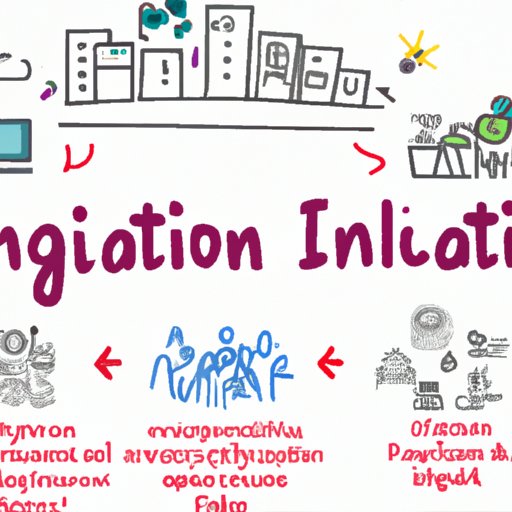Introduction
Social innovation is a term that has been gaining traction in recent years. It refers to new ideas, products, services, models, or strategies which aim to address social needs and challenges more effectively than existing solutions. It is an important tool for finding innovative solutions to pressing social issues and can drive change at both a local and global level.
Definition of Social Innovation
At its core, social innovation is about creating value for society. It is about recognizing existing problems and developing creative solutions that have a positive impact on the lives of people and communities. By focusing on solving social problems, social innovation is more than just a business model; it is a way to make real, lasting changes in the world.
Unlike traditional approaches to problem-solving, social innovation focuses on the collective good instead of individual gain. It emphasizes collaboration and collective action as ways to create positive change. This means that social innovators strive to find solutions that benefit all stakeholders, not just those with the most financial resources or power.
Overview of Social Innovation’s importance
Social innovation is becoming increasingly important as societies face complex, interconnected challenges. From climate change and economic inequality to gender discrimination and health disparities, these issues require systemic solutions that are beyond the scope of traditional methods. Social innovation provides a platform for addressing these issues in a more holistic and integrated manner.
The importance of social innovation also lies in its potential to empower individuals and communities to become active agents of change. By allowing people to participate in the design and implementation of solutions, social innovation can help create a sense of ownership and responsibility among citizens. This can lead to greater engagement and collaboration between different stakeholders, resulting in more sustainable and effective solutions.

Examples of Successful Social Innovations
There are many examples of successful social innovations around the world. One example is the Grameen Bank in Bangladesh, which provides small loans to rural women to help them start their own businesses. This initiative has enabled thousands of women to become self-sufficient and has had a positive impact on their families and communities.
Another example is the Global Giving project, which connects local non-profits with donors around the world. Through this initiative, organizations are able to access resources and support from a global network, enabling them to have a greater impact on their communities.
These are just two examples of how social innovation can be used to create meaningful change. By providing innovative solutions to pressing social issues, social innovators are making a real difference in the world.
Tackling Global Challenges Through Social Innovation
One of the main benefits of social innovation is its ability to tackle global challenges. By creating solutions that are tailored to local contexts and cultures, social innovators can develop strategies that are more likely to succeed. Governments can play a key role in fostering social innovation by providing resources and support to organizations working on innovative projects.
In addition, digital technologies can be leveraged to facilitate social innovation. By connecting people and organizations, digital tools can enable collaboration and promote knowledge sharing. These tools can also be used to create virtual networks that allow organizations to reach a wider audience and increase their impact.
Finally, different approaches to funding social innovation can be explored. For example, crowdfunding platforms can provide an opportunity for organizations to access capital from a diverse range of sources. By diversifying the sources of funding, organizations can ensure that their projects are supported by a wide range of stakeholders.

Impact of Social Innovation on Local Communities
Social innovation can have a positive impact on local communities. By providing resources and support to underserved populations, social innovators can help to reduce poverty, improve access to education, and increase opportunities for economic development.
In addition, social innovation can help to build stronger communities. By encouraging collaboration and dialogue between different stakeholders, social innovators can help to foster trust and understanding among members of a community. This can lead to increased civic engagement, improved quality of life, and more equitable access to resources.
Finally, social innovation can help to increase the reach of organizations. By leveraging digital technologies, organizations can expand their reach and engage a wider audience. This can help to spread awareness of their initiatives and increase the impact of their work.
Conclusion
Social innovation is an important tool for creating positive change in the world. By focusing on solving social problems, social innovators can develop innovative solutions that have a lasting impact on local communities. Governments, digital technologies, and different approaches to funding can all play a role in supporting social innovation and increasing its reach. Ultimately, social innovation can help to create a better world for everyone.
In conclusion, social innovation is a powerful tool for addressing the world’s most pressing challenges. By providing solutions that are tailored to local contexts and cultures, social innovators can create meaningful, lasting impacts on communities around the world. Therefore, it is essential that we continue to explore the potential of social innovation and its role in driving positive change.
(Note: Is this article not meeting your expectations? Do you have knowledge or insights to share? Unlock new opportunities and expand your reach by joining our authors team. Click Registration to join us and share your expertise with our readers.)
